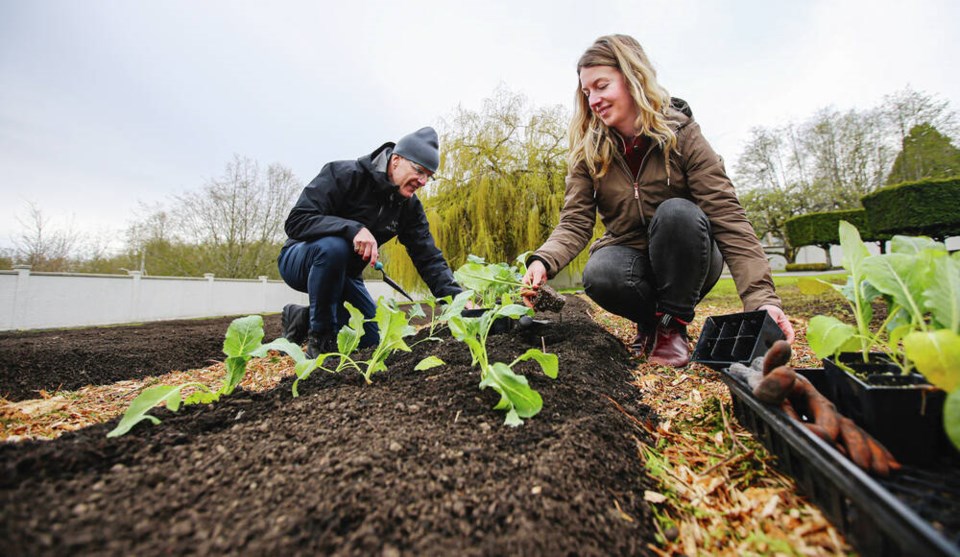The former “kitchen garden” of the Dunsmuir family’s Hatley Castle estate is being resurrected as a learning lab and sustainable food-production hub for the community.
The first plots in the garden were unveiled on Wednesday as part of Royal Roads University’s annual spring fundraising campaign. The Vision in Bloom campaign has a target of raising $250,000 to support ongoing work to restore, re-imagine and sustain the university’s century-old gardens and ancient landscapes.
“Our vision for food production is grounded in the sustainable principles of planting carefully, never taking more than we need, and sharing what we harvest,” said Royal Roads president and vice-chancellor Philip Steenkamp. “Importantly, it’s about decolonizing the space. It’s also about building on the bounty of nature and honouring what generations of care and attention have provided, so we can share with the community.”
Redesigning the underused 5.26-acre garden into a community food-production hub creates “an edible landscape,” Steenkamp said.
The garden will eventually produce an abundance of organic vegetables, fruit, honey and herbs for use on campus and throughout the community, the university said.
The new garden, estimated to cost $500,000 over two years, will also celebrate the diverse cultures and histories of people who have lived and continue to live on the lands.
The campus and gardens are on the traditional lands of the Xwsepsum and Lekwungen ancestors and families who have lived there for thousands of years. The garden will give space to learn from elders about Indigenous ways and food systems, the university said.
“We want to work really intimately with the landscape, to learn from it, to uphold the existing Indigenous food systems,” said Hilary Leighton, co-chair of the Kitchen Garden Committee, associate professor and program head in the School of Environment and Sustainability.
Solara Goldwynn, food systems manager of the garden, said in addition to vegetables and perennial plants, it will eventually feature more fruit trees, Indigenous foods and a medicine garden.
The first harvest is expected in mid-September. The first new planting site, named the Giving Garden, is being created using a no-dig sheet mulch to support a first-year planting of squash, collard greens, edible flowers, garlic and more.
Community groups interested in getting involved in the food-sharing program can contact the university for details.
The university is accepting donations at RRUinBloom.ca.
dkloster@timescolonist.com



